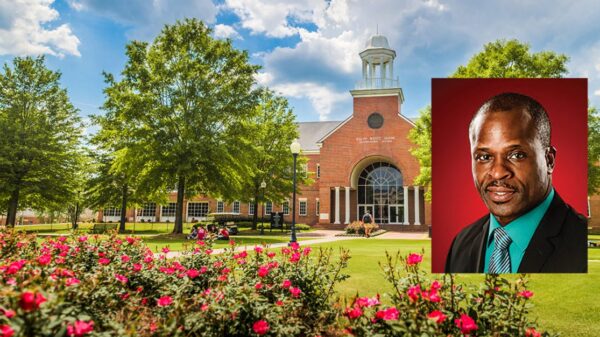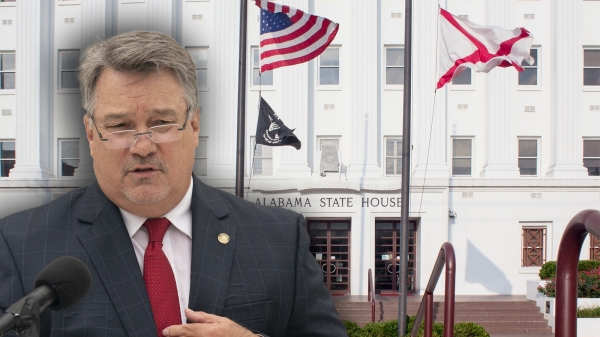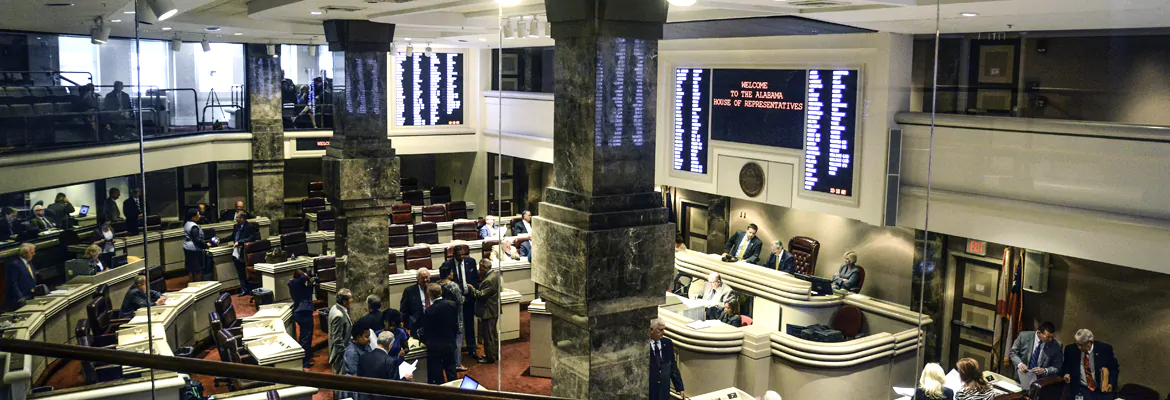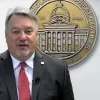By Brandon Moseley
Alabama Political Reporter
Monday, August 3, the Alabama legislature return for a Special Session to deal with the State General Fund (SGF) situation that has had the legislature and the Governor at loggerheads for months now.
Alabama Governor Robert Bentley (R) is demanding that legislators increases taxes on the people of Alabama by at least $310 million and raid $31 from the education trust fund (ETF) to fully fund the SGF to over $1.9 billion for fiscal year 2016 which begins on October 1.
The Governor wants to transfer existing use tax dollars from the ETF to the SGF. He also wants to raise the tobacco tax by 25 cents per pack and apply the tax to new e-cigarettes and vapor products. The vape tax has been criticized as making it harder for people to get off of tobacco products. The governor also wants to change the business privilege tax so that it hits corporations and large businesses much harder while exempting most small businesses.
Gov. Bentley would partially pay for the hole in the ETF by raising income taxes by eliminating the FICA and Federal income tax deductions. Many taxpayers would see their taxes go up under Bentley’s plan.
Another plan being discussed is taxing soft drinks, tea, coffee, sports drinks etc. on top of the existing sales taxes that people already pay. This has been criticized as a regressive tax that hits families the hardest.
One proposal that appears to be gaining steam is transferring $260 million a year in use taxes to the General Fund and then either recessing or plugging the hole in the future with gambling revenues. The growth taxes that fuel the ETF are very volatile; but legislators are predicting that the EF will have a $260 million surplus next year that goes to the stabilization fund. The Governor wants to take $31 million of that in addition to all of his tax increases. Some legislators want to take the whole $260 million a year to fix the general fund. Some want to plug the hole in the future with a lottery.
Fiscal conservatives want to pass some version of the austerity budget that the legislature passed in June but the Governor vetoed. It would downsize most state agencies as well as cut Medicaid benefits. That budget cut the SGF to $1.62 billion for fiscal year 2016, $198 million less than the fiscal year 2015 budget. The governor wants to balloon the SGF to in excess of $1.9 billion in 2016, substantially increasing what the State spends on Corrections and Medicaid while level funding other SGF agencies.
The Governor also wants to dedicate the BP settlement money as it comes in to paying off debts that the state owes. This is highly unpopular on the Gulf Coast where they argue that they bore the brunt of the disaster from the oil spill so the money should be spent on infrastructure improvements there instead of being spent on the State’s financial mismanagement. Rather than right sizing State spending to match State revenues legislators plundered the Alabama Trust Fund of $547 million optimistically hoping for a brighter day when the economy is stronger and tax revenues are higher. That day never came so now the Governor and many legislators want to pay off that debt as well, as ~$65 million the State owes the federal government in improper Medicaid billing, with one time dollars from the BP settlement.
The Governor also wants the legislature to borrow another $55 million in bond issues so that the State can build a luxury hotel and conference center at Gulf State Park. Fiscal conservatives have opposed this project because it burdens future generations with debt to pay for a high risk venture in a hurricane zone.
Legislators also have pet issues that they hope to bring up in the Special Session.






















































